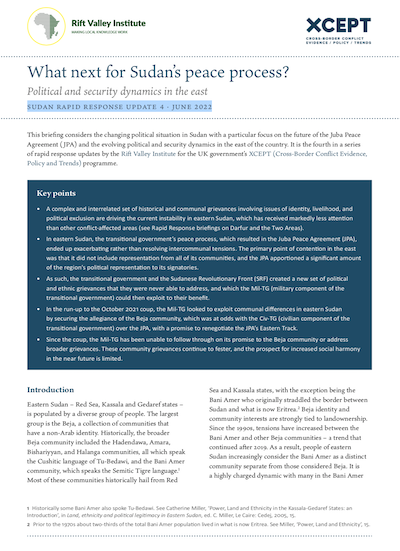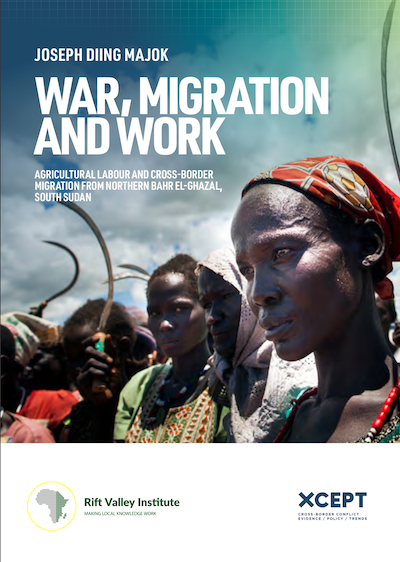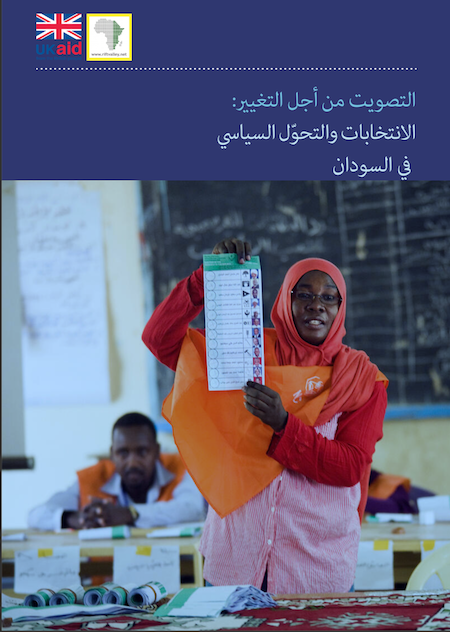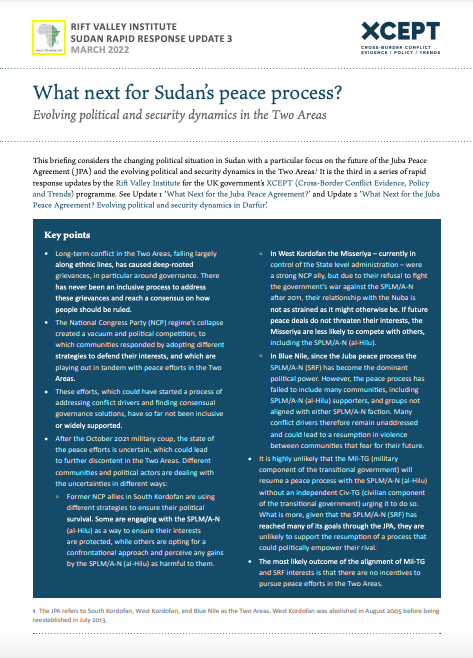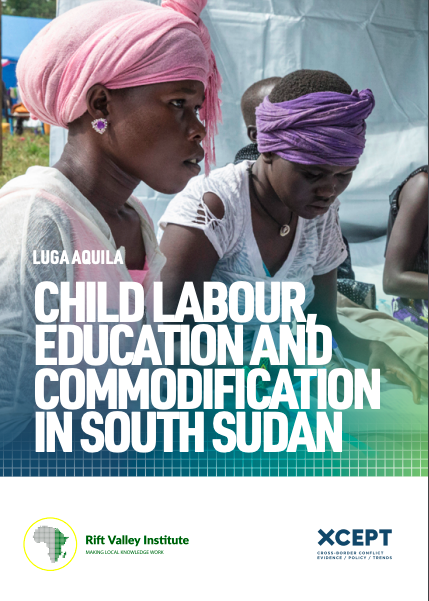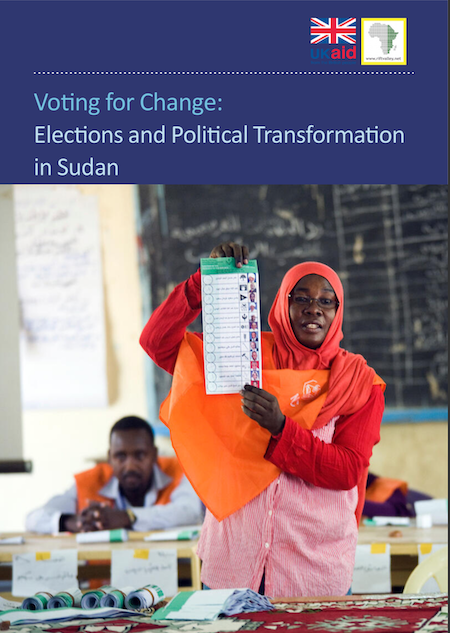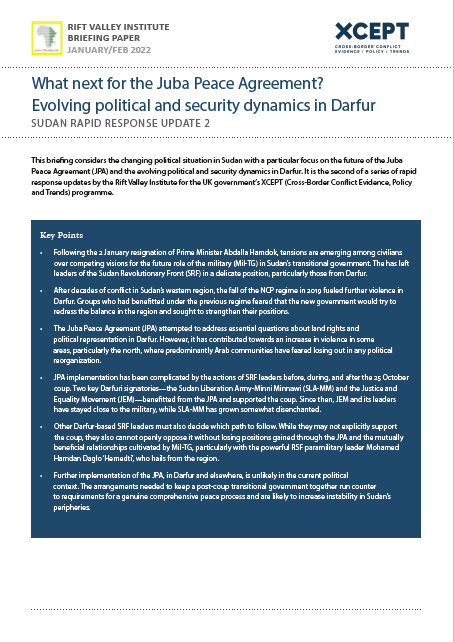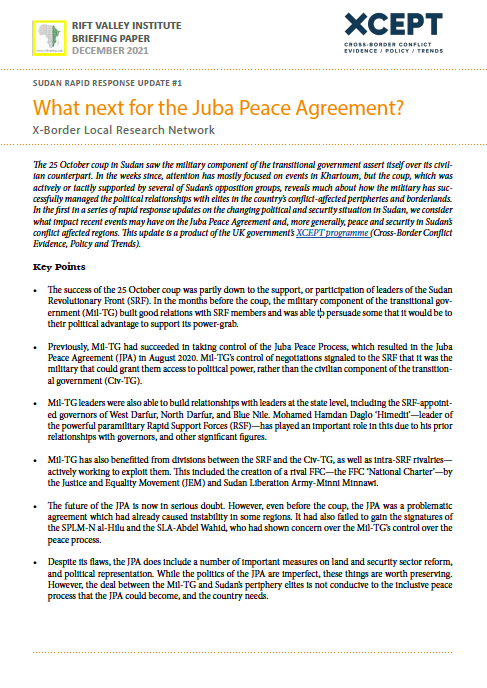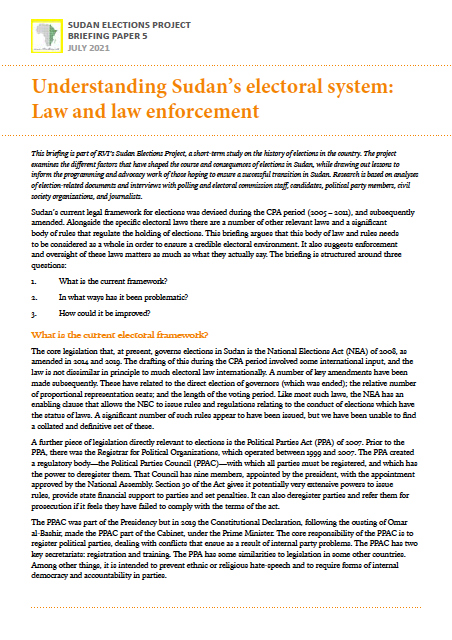This briefing considers the changing political situation in Sudan with a particular focus on the future of the Juba Peace Agreement (JPA) and the evolving political and security dynamics in the east of the country. It considers the role…
RVI publishes books, research reports, research papers, briefings and meeting reports in a range of formats. Publications cover policy, research, arts, culture and local knowledge in the countries of eastern and central Africa. Research publications—books, reports and papers—are peer-reviewed. Some RVI publications are also available in French and/or Arabic.
The RVI is a signatory of the Budapest Open Access Initiative (2001); all publications are free for download in PDF format under Creative Commons licences. The views expressed in books and reports published by the RVI are those of the authors, not the Institute.
SEARCH
PUBLICATION TYPE
LANGUAGE
REGION
COUNTRY
War, Migration and Work examines the history of labour migration and labour relations in present day South Sudan’s Baher El-Ghazal borderlands with Darfur and Kordofan (regions of present day Sudan). Beginning in the nineteenth century, the report charts the evolution…
جاء تصميم العملية الانتقالية في السودان لتؤدي إلى – وتتقدم من خلال – انتخابات قومية تثبت نجاح ومصداقية الانتقال السياسي. لكن هذا الأمر ينطوي على مخاطر كبيرة. فقد تتعرض العملية الانتخابية، وخاصة نتائجها، للتشكيك والطعن من قبل أصحاب…
This briefing considers the changing political situation in Sudan with a particular focus on the future of the Juba Peace Agreement (JPA) and the evolving political and security dynamics in the Two Areas. It is the third in a…
Until the latter part of the twentieth century, South Sudanese boys and girls grew food on household farms for their families to eat. Under this system, children’s work and education were hard to distinguish. Today, however, many boys and…
Sudan’s political transition, which began following the ousting of Omar al-Bashir in 2019, is designed to lead up to—and be advanced by—national elections. Those polls will be crucial to the success and credibility of political transition, but they carry…
This briefing considers the changing political situation in Sudan with a particular focus on the future of the Juba Peace Agreement (JPA) and the evolving political and security dynamics in Darfur. It is the second of a series of…
The 25 October coup in Sudan saw the military component of the transitional government assert itself over its civilian counterpart. In the weeks since, attention has mostly focused on events in Khartoum, but the coup, which was actively or…

- By Raga Makawi, Justin Willis
- Download
In the first episode of the Sudan Elections podcast series ‘Voting for Change’, host Raga Makawi talks to Justin Willis- Professor of Modern History at Durham University – about election models adopted in Sudan’s modern history, key…
This briefing is part of RVI’s Sudan Elections Project, a short-term study on the history of elections in the country. The project examines the different factors that have shaped the course and consequences of elections in Sudan, while drawing…
Recent Publications

EWNET Writes: Writing Workshop Session I
December 18, 2025
The Ethiopian Women Researchers Network (EWNET) inaugural writing workshop series aims to not only provide women researchers with uninterrupted time for their scholarly projects, but also build a supportive academic community. The first session, entitled ‘EWNET Writes: Writing Workshop Session

SSC-Khaatumo: Perspectives on the significance and implications of its formation
December 12, 2025
On 15 April 2025, during a visit to the city of Las Anod in Sool, Prime Minister Hassan Abdi Barre officially declared the federal government’s recognition of SSC-Khaatumo (SSC-K hereafter) as a federal member state, marking an important milestone in

Aid and Conflict Sensitivity in Contemporary Ethiopia
November 17, 2025
This study assesses conflict sensitivity practices among humanitarian, development and peacebuilding (HDP) actors in Ethiopia. It seeks to raise awareness and foster a deeper understanding of the evolving aid landscape in the country while analysing the challenges that affect conflict-sensitive
